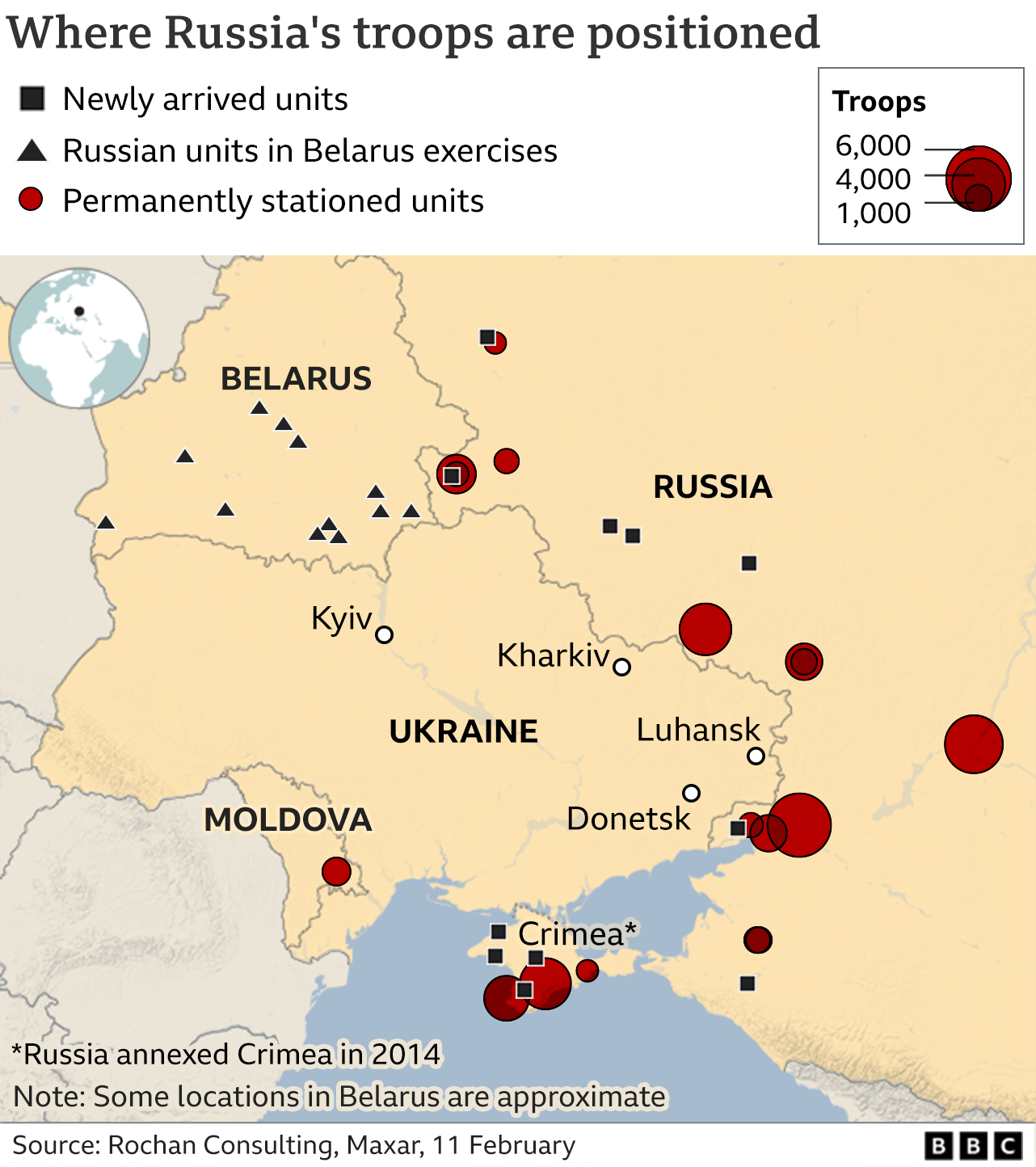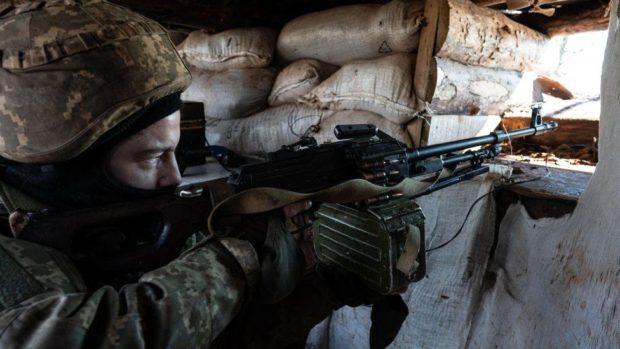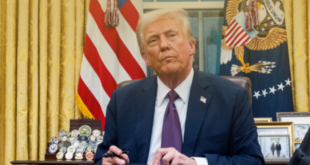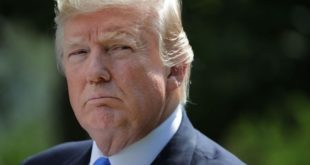Ukraine has called for a meeting with Russia and other members of a key European security group over the escalating tensions on its border.
Foreign Minister Dmytro Kuleba said Russia had ignored formal requests to explain the build-up of troops.
He said the “next step” was requesting a meeting within the next 48 hours for “transparency” about Russia’s plans.
Russia has denied any plans to invade Ukraine despite the build-up of some 100,000 soldiers on Ukraine’s borders.
Mr Kuleba said Ukraine had, on Friday, demanded answers from Russia under the rules of the Vienna Document, an agreement about security issues adopted by the members of the Organisation for Security and Cooperation in Europe (OSCE), which includes Russia.
“If Russia is serious when it talks about the indivisibility of security in the OSCE space, it must fulfil its commitment to military transparency in order to de-escalate tensions and enhance security for all,” he said.
Some Western nations have warned that Russia is preparing for an invasion, with the US saying it could begin with aerial bombardments “at any time”.
More than a dozen nations have urged their citizens to leave Ukraine, and some have pulled embassy staff from the capital. CBS News reported that the US is preparing to withdraw all its personnel from Kiev within the next 48 hours, citing three sources.
But Ukraine’s President Volodymyr Zelensky, who criticised the “panic” that could spread from such claims, said he had no proof that Russia was planning an invasion in the coming days.
On Sunday, President Zelensky spoke for nearly an hour by phone with US President Joe Biden. The White House said President Biden reiterated US support for Ukraine, and that both leaders had agreed on “the importance of continuing to pursue diplomacy and deterrence”.
Ukraine’s statement of the call said its president thanked the US for its “unwavering support” and that, at the end, President Zelensky invited the US leader to come to Ukraine. There has been no comment from the White House.
An hour-long call between President Biden and Russian leader Vladimir Putin on Saturday failed to yield a breakthrough.
Reporters in Kyiv say panic has not spread to the city, but such warnings from the US and others have had an effect.
Some commercial airlines cancelled flights to the country at the weekend, while Ukraine said it was committing the equivalent of hundreds of millions of dollars on flight safety and insurance to keep flight paths operating.
In July 2014, 298 people were killed when a Malaysian Airlines Flight was shot down over the part of eastern Ukraine occupied by Russia-backed rebel forces.


Earlier, Ben Wallace, the UK defence secretary, attracted criticism from Ukraine for comments he made comparing the current situation to the appeasement of Nazi Germany in the run-up to World War Two.
He told the Sunday Times newspaper: “It may be that he [President Putin] just switches off his tanks and we all go home but there is a whiff of Munich in the air from some in the West,” referring to the Munich agreements which allowed Germany to invade the Czechoslovakian territories. That concession failed to prevent the eventual war.
Ukraine’s ambassador to the UK responded by telling the BBC’s Broadcasting House radio programme: “It’s not the best time for us to offend our partners in the world, reminding them of this act which actually did not bring peace but the opposite – it bought war.”
But diplomatic efforts also continue on other fronts. German Chancellor Olaf Sholz has meetings scheduled with President Zelensky in Kyiv on Monday and with President Putin in Moscow on Tuesday.
The chancellor, who took over the leadership of Germany from Angela Merkel in December, has warned of severe economic consequences for Russia if it should launch any invasion, echoing statements by other Western nations and members of the Nato military alliance.
But Berlin officials have downplayed any expectation of a breakthrough.
One of Russia’s demands is that Ukraine – not currently a member – would never be allowed to join Nato.
Nato and Western nations insist that sovereign countries such as Ukraine are free to decide things for themselves, including potentially applying for membership of the security alliance, formed in part as a counter-measure to the Soviet Union in the aftermath of World War Two.
Russia contends that its build-up of troops along the Ukraine border is its own concern, within its own territory. On Sunday, senior foreign policy official Yuri Ushakov characterised the US warnings of imminent invasion as “hysteria has reached its peak”.
BBC.COM
 Home Of Ghana News Ghana News, Entertainment And More
Home Of Ghana News Ghana News, Entertainment And More





